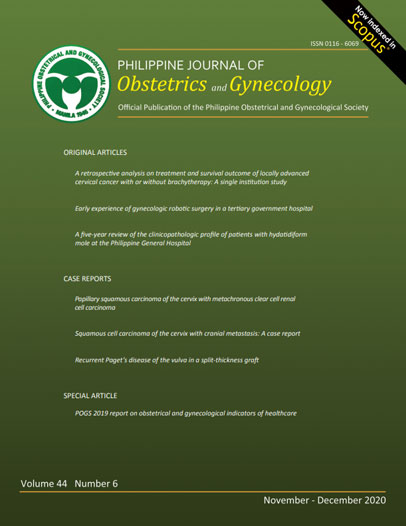Search for articles
Article Detail
Association between anemia and intestinal parasitism among pregnant women (ages 15-44 years-old) attending antenatal clinic in a tertiary hospital
An Jubyl Y. Amado, MD; Ida Magnolia Y. Reyes, MD, FPOGS
Department of Obstetrics and Gynecology, Ospital ng Maynila Medical Center
Objective: The objective of this study is to determine the prevalence of intestinal parasitism and anemia among pregnant women ages 15-44 years old consulting for antenatal check-up in a tertiary hospital.
Materials and Methods: Study population was based on inclusion criteria and was significance was statistically determined using odds ratio statistical analysis using SPSS software.
Results: The results of this study showed evidences of an alarming association between prevalence of soil-helmithiasis and anemia among Filipino pregnant women. These diseases have been a major global public health concern and up to date have been very difficult to address despite the efforts done by the local and international health organizations. Although this study is limited only in gathering sufficient data on the prevalence of anemia and intestinal parasitism, this may have provided future researches on possible benefits of deworming among pregnant women.
Conclusion: Health education and promotion truly have great impact in reducing the prevalence of the burden of these diseases. Therefore, antenatal care should be further emphasized in improving the maternal health in the country.
Current Issue
Search article

